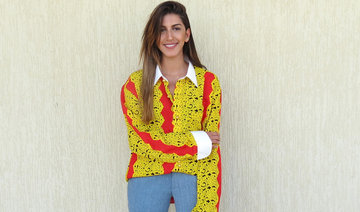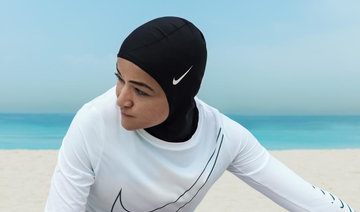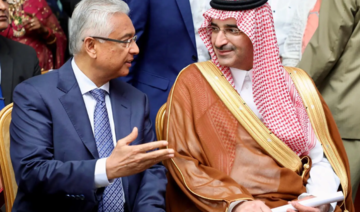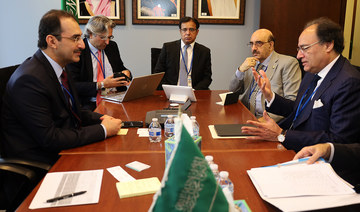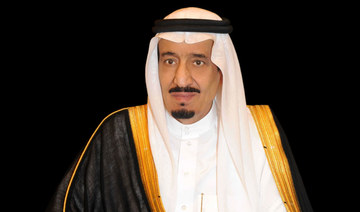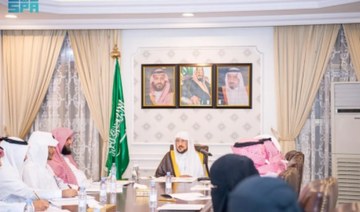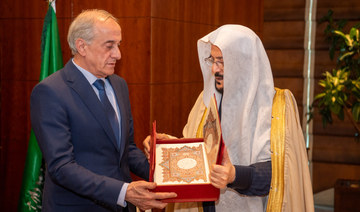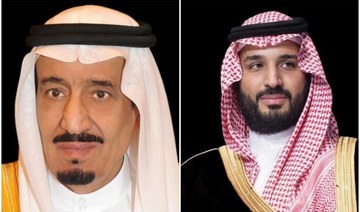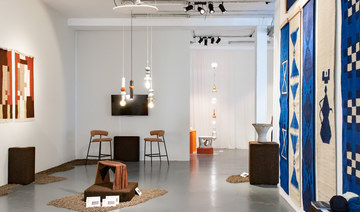JEDDAH: She is a rarity in the foreign diplomatic corps in Jeddah. Ever since she arrived in January 2015 for her first foreign posting as Italy’s consul general, Elisabetta Martini has carved a niche for herself and her country through her extraordinary work and outreach efforts. On the eve of International Women’s Day, she spoke to Arab News about the challenges she has faced as a female diplomat, and her observations about Saudi women.
She chose Saudi Arabia as her diplomatic posting “because it was an extremely challenging post, and that was the hook for me. When somebody throws a challenge at me I immediately accept it. When I was asked to apply for foreign posts, I chose Jeddah.”
Martini describes Saudi Arabia as “a very powerful country in terms of natural resources, in terms of being a regional power, a country that maintains the regional balance in the Middle East. Before coming here, I knew of Saudi Arabia as a giant that wasn’t fully awake. It has the potential to become the most powerful country in the region.”
She started her diplomat career in 2012. She was posted in Rome for two years, where she dealt mostly with European affairs and foreign policy. She graduated in political science and completed her master’s in international relations.
She interned for six months at the Italian Embassy in Washington, DC, while she was doing research for her final thesis at John Hopkins University. The subject of her thesis was the Silk Road. During her time in the US, she was associated with a well-known Italian think tank, the International Affairs Institute (IAI). “That’s when I realized the importance of think tanks,” she said.
From the US, Martini moved to Brussels as the assistant of the representative of the Italian Senate at the European Parliament. “That was an extremely useful experience for me,” she said.
Later, she worked as an export manager for a German design company. “I represented this German firm and I used to sell a lot of their products to mostly Arab clients,” she said. All this experience stood her in good stead. “I got to know the private sector, the powerful role of think tanks and then the public sector,” she said.
In the first week of her arrival in Jeddah, King Abdullah died. “So change started to happen very quickly. That was another challenge for me, because my first public appearance was to give condolences for the death of the late king in the (presence) of the governor of Makkah,” Martini said.
“They were all men. There was a discussion between me and my colleagues, and with other consul generals, about how I should be dressed, how I should look… and how I should behave when paying condolences (here). At the same time, it was my first public appearance.” She said she covered her head out of respect for local traditions. “That really went well.”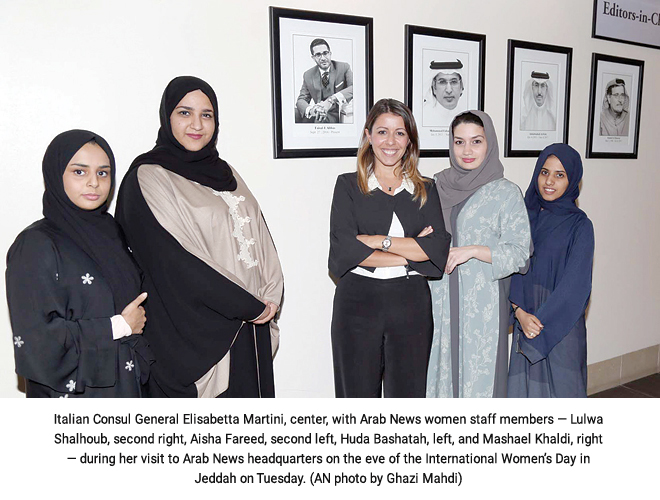
On how challenging it is for a female diplomat in a country where women are not the predominant force in public life, she said: “It’s difficult for women, not just a female diplomat, all over the world, not just in Saudi Arabia. In my country, when I deal with my own people as myself and not as a diplomat, I support women’s rights. Everyone should give this contribution to the development of his or her own country.
“However, one shouldn’t interfere in the policies of other countries. In Italy, there’s a top-down policy that tries to push women into key areas. Women around the world have to work from the bottom up, instead of top-down.” She said people in Italy are surprised to know that she is the consul general in Jeddah.
Regarding Saudi women, Martini said she has seen a lot of changes. “When I came here, I was a bit surprised because the American consul general was a lady before me. The British consul general was a lady some years ago. The German consul general was a lady, so I wasn’t the first lady in the diplomat service here. The difference was that I was young, so I had to prove myself.
“Women are more critical toward other women because we know how much we have to fight and struggle for something. But when you see someone has made it to the top, you ask how she achieved it. Maybe because she’s the daughter of an ambassador? They try to belittle your success.”
Martini said she has interacted with a lot of women here. “Saudi Arabia isn’t one Saudi Arabia. There are different layers of society. There’s a big difference between the various classes of society. Some women who come from opened-minded families don’t have to face any problem. There are women who participate in municipal elections and civic activities.
“But there are some women who face lot of issues. So there are different layers. There are some women in Saudi Arabia who are more qualified than me and can do whatever job they want. Their fathers, husbands and brothers admire them. It’s amazing. But others have to struggle a lot.”
As a diplomat, did she encounter conservatives in the Kingdom, and if so how did she deal with it? “In Saudi Arabia, people recognize authority. They have a very strong sense of authority. They might say ‘you’re a lady and young,’ but they know I represent Italy in Jeddah. They have a strong respect for the state. So as far as I’m the consul general, they respect me. Everyone meets with me in a very respectful way.
“So far, I’ve never met someone who refused to shake my hand. I found Saudis super welcoming. I’m always being welcomed to their houses for big and intimate gatherings. They try to make me feel at ease.”
About women journalists in Saudi Arabia, Martini said: “It’s very important to encourage female journalists because it’s very important to have their point of view. They’ll always have a different point of view. Only they can understand their issues well.”
She said in advanced countries, women do not want to celebrate International Women’s Day as they have already reached gender equality. “But for me this occasion reminds us of the importance of women in society. We need to push the role of professional women in the world. We’re the other 50 percent of society. My message to women is not to rely on the fact that they’re women. They must think of themselves first and foremost as human beings, and go ahead in life.”
Italy’s first woman consul general sees a multi-layered, dynamic Saudi society
Italy’s first woman consul general sees a multi-layered, dynamic Saudi society
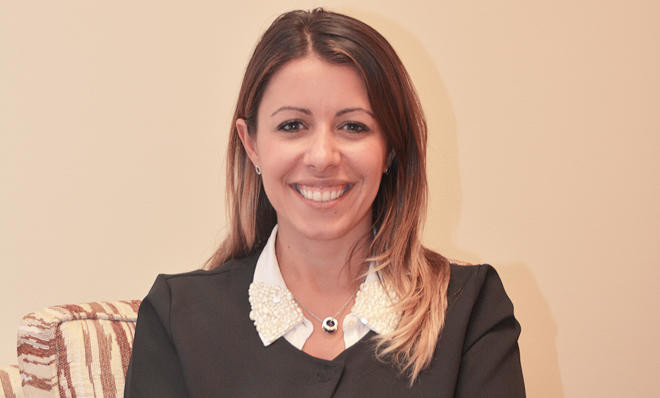
Saudi fund signs two loan agreements, inaugurates Hulhumale Island development in Maldives

- Al-Marshad participated in the partial inauguration of the Hulhulmale Island Development Project
MALE: CEO of the Saudi Fund for Development Sultan bin Abdulrahman Al-Marshad signed on Friday two development loan agreements with the Maldives’ Minister of Finance Dr. Mohammed Shafiq. These agreements will contribute to financing the Velana International Airport development project with a value of $100 million and the healthcare sector development project in the Maldives with a value of $50 million, provided by fund.
Additionally, Al-Marshad participated in the partial inauguration of the Hulhulmale Island Development Project, which the SFD is contributing to financing through a soft development loan worth $80 million. The event was also attended by Saudi Ambassador to the Maldives Matrek bin Abdullah Al-Ajalin.
King Salman issues royal order to promote 26 judges

RIYADH: King Salman issued a royal order on Friday to promote 26 judges at the Board of Grievances, Saudi Press Agency reported.
President of the Board of Grievances and Administrative Judicial Council Sheikh Khalid bin Mohammed Al-Yousef said that the royal order confirmed the keenness of the Kingdom’s leadership to support the judiciary to develop its performance and achieve quality and efficiency.
Earlier this month, the king issued a royal decree on Saturday to appoint 261 investigative lieutenants at the Ministry of Justice’s Public Prosecution.
Saudi Islamic affairs minister inaugurates mosques

- Dr. Abdullatif Al-Asheikh said: “Contributing to building and caring for mosques is a good deed that earns people rewards”
ARAR: Saudi Minister of Islamic Affairs, Dawah and Guidance Dr. Abdullatif Al-Asheikh inaugurated the Al-Hanouf Al-Zwain and Ali Mohammed Al-Melhem mosques in the city of Arar as part of a visit to the area to inspect work progress.
The ministry’s undersecretaries and several department directors, as well as the director of the ministry’s branch in the Northern Borders region, Fahd bin Sulaiman Al-Khalifa, attended the event.
Al-Asheikh toured the two mosques, and was briefed on their construction in the Salmani architectural style, as well as their associated facilities and services.
He said: “Contributing to building and caring for mosques is a good deed that earns people rewards.”
The minister added that the Kingdom, since the era of King Abdulaziz until today under King Salman and Crown Prince Mohammed bin Salman, has given great importance to mosques.
Al-Asheikh prayed for the reward of those who built the mosques, and for the maintenance of Saudi Arabia’s security and stability.
Saudi crown prince receives princes, officials, scholars, citizens in Eastern Region

- The audience was also attended by energy minister Prince Abdulaziz bin Salman
DAMMAM: Saudi Crown Prince Mohammed bin Salman on Friday received several princes, officials, scholars and a group of citizens at the Gulf Palace in Dammam, Saudi Press Agency reported.
At the beginning of the reception, they all listened to a recitation of verses from the Holy Qu’ran, SPA added.
The audience was also attended by Prince Saud bin Naif bin Abdulaziz, governor of the Eastern Province, energy minister Prince Abdulaziz bin Salman, and Prince Mishari bin Abdullah bin Abdulaziz bin Musaed.
While in the Eastern Province, the crown prince also held a meeting with UAE President Sheikh Mohamed bin Zayed Al-Nahyan, according to an Al Arabiya report.
Faia Younan serenades Ithra

- At the opening night performance, Younan sang to a full house — almost every plush red seat at the Ithra Theater was occupied
- Throughout the performance, the band surrounded the singer like a frame, with the set lights changing colors behind her
DHAHRAN: Syrian star Faia Younan graced the stage at the King Abdulaziz Center for World Culture, Ithra, for the first of two evenings of music on Thursday.
Returning to the Ithra stage after almost a year, the singer-songwriter performed a medley of her most popular hits, some original songs and a few covers.
“Her music fuses modern arrangements, traditional instruments and lyrics based on classical literary poetry, shaping her unique musical identity,” Ithra said in a statement to Arab News.
At the opening night performance, Younan sang to a full house — almost every plush red seat at the Ithra Theater was occupied.
After her first song, the singer asked the sound team to turn on the balcony lights so she could greet the audience.
“I am so excited to be back in the Kingdom. I would like the lights to be turned on so I could capture a visual snapshot of this beautiful crowd,” she told her fans to loud applause.
Younan included the audience by asking them to clap along to certain sections and encouraging them to join in when she repeated part of a song, telling them: “Those aching to sing along can do so with me.”
Throughout the performance, the band surrounded the singer like a frame, with the set lights changing colors behind her.
Younan thanked every musician who accompanied her on stage. The band was led by pianist Rayan Habe, followed by Mohamed Ben Salha on ney, Abdul Halim Al-Khatib on qanoun, Yarub Samarait on violin, Walid Nassaer and Salman Baalbaki on percussion, and Julio Eid on bass guitar.
In an endearing moment, the heel of Younan’s shoe broke as she was belting out a lyric. But the singer completed the song without interruption, then elegantly removed her shoes and told the crowd that the accident was a blessing in disguise.
“Now, I can dance more easily to the next song, which will be Khaleeji,” she told the roaring crowd.
After singing many Arabic songs, Younan switched to Assyrian sounds, performing in one of the many ancient languages spoken in her native Syria.
The singer made history in 2015 when she became the first woman artist from the MENA region to crowdfund her debut single, “Ohebbou Yadayka.”
Younan has more than 1.3 million followers on Instagram and a huge fan base in the region.
Earlier this year, she was one of the winners of the Prince Abdullah bin Faisal Award for Arabic Poetry, in the best sung poem category, which earned her a prize of SR200,000 ($53,333).
“Mashallah, Faia managed to play a lot of her songs — and her singing live sounds a lot like the studio recording,” attendee Assiel Al-Shuail told Arab News at the end of the opening night.
The finale of Younan’s two-day show ends Friday, starting 8 p.m.





